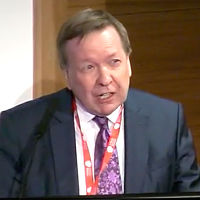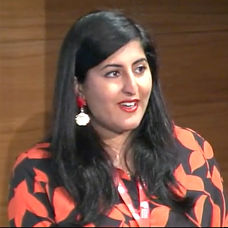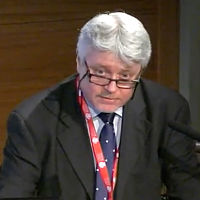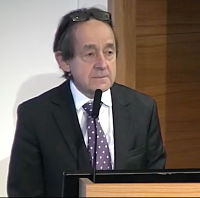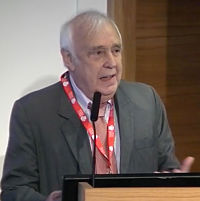Indexes - all Resources

Power causes brain damage. (2017)
"When a congressional hearing flayed Wells Fargo CEO John Stumpf for failing to stop employees setting up phony accounts for customers... he seemed utterly unable to read a room." Jerry Useem, staff writer The Atlantic, July/August 2017 issue "Over time, leaders lose mental capacities - most notably for reading other people - that were essential to their rise." “...When various lawmakers lit into John Stump...
Written by: Useem, J.
Read morePower, Gender, Hubris conference video 5/5, Professor Trevor Robbins. Neurobiology of decision making, gender and the exercise of power. (2017)
Professor Trevor Robbins discusses the hubris syndrome and its critical involvement in deficient decision-making. Professor Robbins also makes observations on how damage to the frontal lobe, gender and chronic stress have effects on decision-making. From the conference ‘Power, gender and hubris: success and arrogance as risks to leadership in health care and beyond' Held at the Royal Society of Medicine in London on 9 May 2017. ...
Written by: Robbins, Trevor.
ViewPower, Gender, Hubris conference video 4/5, Dr Farrah Jarral. Hubris, power and gender: An anthropological perspective. (2017)
Dr Farrah Jarral, broadcaster and Paddington Green Health Centre GP discusses the history of anthropology and how it shaped our contemporary understanding of the world, for good and ill. Dr Jarral argues that “anthropology has helped us understand cultures different from our own, but was also used to enforce power structures, racial and gender hierarchies.” Dr Jarral also focuses on the new, speculative frontiers that anthropology is heading...
Written by: Jarral, F.
ViewPower, Gender, Hubris conference video 3/5: Professor Douglas Cairns. Hubris in classical myth and morality. (2017)
Professor Douglas Cairns, University of Edinburgh, discusses the classical definition of Hubris. He describes how it was defined by the great classical thinkers, in relation to temperament and law, and how it relates to modern morals. From the conference ‘Power, gender and hubris: success and arrogance as risks to leadership in health care and beyond' Held at the Royal Society of Medicine in London on 9 May 2017. Watch the vid...
Written by: Cairns, D.
ViewPower, Gender, Hubris conference video 2/5: Sir Anthony Seldon. Leadership and power: The role of history. (2017)
Sir Anthony Seldon, University of Buckingham Vice-Chancellor, addresses five topics:
- Hubris as it has affected recent UK Prime Ministers, from Margaret Thatcher to David Cameron (“four out of the five suffered hubris, an 80% rate that may or may not apply across all 54”)
- Why might Prime Ministers be unusually hubristic? “You don’t find humble, meek people wanting to be Prime Minister”.
- A closer look ...
Written by: Seldon, A.
ViewPower, Gender, Hubris conference video 1/5: Lord Robert Skidelsky, Introduction on the concepts of power. (2017)
“We often talk about the effects of power without bothering to define it. … The topic is often restricted to the psychological effects of power on people, how they succumb to hubris etc. … I’d like to discuss three definitions of power: blunt power, agenda power and ideological power.” From ‘Power, gender and hubris: success and arrogance as risks to leadership in health care and beyond' conference Royal Society of Me...
Written by: Skidelsky, Robert.
ViewThe ‘golden passport’ is stamped with hubris. (2017)
"… Wall Street loves MBAs' analytical detachment, but that separation from real-world consequences is the very source of the financial world’s regularly occurring convulsions." Duff McDonald 3 June 2017, The Times "In 1978, The New York Times correctly described a Harvard MBA as “the golden passport to life in the upper class”… The roster of prominent alumni of the school - colloquially known as Masters of th...
Written by: McDonald, D.
Read moreThe type of narcissist that can make a good leader. (2017)
“Instead of avoiding narcissists, organizations may be better served in selecting the right type of narcissist." Randall S. Peterson, professor of organizational behavior, London Business School & S. Wiley Wakeman, doctoral candidate, London Business School HBR March 2017 “Narcissist leaders represent a conundrum for organizations. On the one hand, they can be huge assets, maintaining impressive drive a...
Written by: Peterson, R. S. & Wiley-Wakeman, S.
Read moreIf humble people make the best leaders, why do we fall for charismatic narcissists? (2017)
"Our psychological states bias our perceptions of charismatic leaders. High anxiety makes us hungry for charisma. As a result, crises increase the search for charismatic leaders, and our tendency to perceive charisma in the leaders we already follow." Prof. Margarita Mayo, IE Business School in Madrid HBR 7 April 2017. "The research is clear: when we choose humble, unassuming people as our leaders, the world around u...
Written by: Mayo, M.
Read moreUnderstanding level 5 leaders: the ethical perspectives of leadership humility. (2017)
“Leaders can be more effective if they understand the ethical nature of leadership and the importance of humility in building trust.” Cam Caldwell, Riki Ichiho, Verl Anderson: Dixie State University, Utah Journal of Management Development, 36(5)
From the Abstract:“Jim Collins, in his seminal work Good to Great, noted that all great organizations are led by “Leve...
Written by: Caldwell, C., Ichiho, R., & Anderson, V.
Read more





